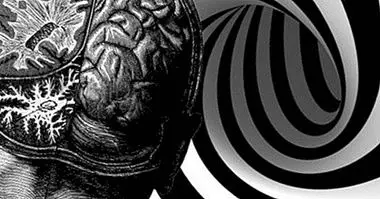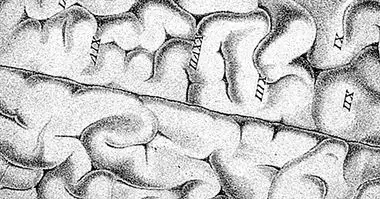Analytical-functional psychotherapy: characteristics and uses
There is a large number of psychological currents, from which various therapies are derived, dedicated to the treatment of different problems. Currently one of the most predominant approaches is cognitive-behavioral, focused on mental processes and their relationship with behavior.
The therapies derived from it have evolved over time in terms of advances in the understanding of mental processes and the overcoming of previous limitations. One of the most recent treatments is the so-called analytic-functional psychotherapy .
- Maybe you're interested: "Behaviorism: history, concepts and main authors"
Functional analytic psychotherapy: its basic premises
Functional analytic psychotherapy is a type of psychotherapeutic treatment focused on the issuance of behavior patterns and their functionality and on their approach based on the positive relationship between therapist and patient as a mechanism for promote behavioral change towards more adaptive behaviors and beliefs , as well as the importance of language.
It is a type of therapy that is part of the repertoire of third generation behavioral modification therapies. As the rest of this type of therapies takes into account the context in which the behaviors occur, it focuses on interpersonal relationships as a mechanism to bring about an improvement in the patient's life and gives great importance to the social environment and communication as elements that originate the problems and that in turn can solve it.
It seeks to treat not the symptoms, but the cause that they appear . Although it is part of the cognitive-behavioral current, it approaches and integrates concepts and ideas from other currents such as psychodynamic or systemic.
The basis of functional analytic psychotherapy is found in what the subject does and says in the session itself, which allow to see aspects of their performance in real life. His behavior in consultation and the problems that it manifests will be representative of those who perform outside of it.
It is given a special importance to the verbal behavior and the way of expressing oneself , since it helps to observe the type of behaviors carried out and to which they are attributed. What is sought is for the patient to make an analysis of their own behavior and interpret its causes and that, in turn, through the therapeutic relationship, behaviors are enhanced to improve and cause changes in the functionality that the subject gives to their behavior .
- Perhaps you are interested: "Behavioral Cognitive Therapy: what is it and on what principles is it based?"
The different types of clinical behaviors
As we have said, what the subject says or does in consultation is the main element with which to work in analytic-functional therapy. These behaviors that the patient carries out during the session are equivalent to those carried out in his daily life in what refers to the function that the subject gives them. It's about the clinically relevant behaviors , among which three subtypes stand out.
In the first place, the relevant behaviors type 1 or those related to the problem or disorder of the treated subject. They are the problematic behaviors that the subject manifests or realizes during the sessions. The objective is to reduce these behaviors, but for this the therapist must provoke them during the session in order to be able to work them. Examples of this are dependency, the excessive search for approval or the remembrance of certain memories.
A second type of behavior is type two, those that generate an improvement or a different and more positive way of dealing with the problem situation. In this case we are facing behaviors that have to be strengthened as much as possible, in a genuine and true way.
Finally, type three behaviors refer to set of attributions or beliefs of the patient towards his own problem , which is sought to analyze together to determine what function they fulfill for the subject and what circumstances generates them. That is, why the patient believes that he acts as he acts and what makes him do it that way in particular. It seeks to encourage the patient to analyze their own behavior so that it can generate positive changes.
- Related article: "Types of psychological therapies"
Elements that help classify behaviors
The identification of the different behaviors that the subject carries out in his daily life is carried out mainly through the analysis of the session itself and the language used by the patient.
In the first aspect they emphasize the emergence of elements such as the temporality of the sessions, the existence of temporary periods without sessions or the failures or successes committed by the professional. All this will have an effect and will be indicative of the patient's procedure.
In terms of language, both what the patient says and what not, and the way of saying it, are relevant. For example, avoid talking about certain issues, make or respond to requests, how to refer to yourself or to attribute the events. The intention with which things are discussed or the function that the subject gives to language is also analytical material.
Therapeutic action
During functional analytic psychotherapy, the therapist's performance is of great importance and a basic pillar for good therapeutic functioning.
In this type of therapy the professional must attend to the clinically relevant behaviors that occur during the session, as well as work to build with the patient a positive therapeutic relationship that allows in the first place to express the problem behaviors and even deliberately provoke them in consultation.
It must be able to see through the analysis of behaviors and expressions what reinforces the maladaptive behaviors and the function they have for the patient, as well as what behaviors are positive to produce an improvement. Likewise, it must motivate and favor the appearance of behaviors that produce an improvement in these behaviors, in a natural way.
Finally, it is fundamental generate in the patient the ability to analyze their own behavior and visualize the equivalence between their behaviors inside and outside of therapy.
In what cases does it apply?
Functional analytic psychotherapy has application in a great variety of psychological problems and disorders. Its operation effective for treating mood problems , self-esteem, disorders caused by trauma, interpersonal relationships and personality disorders (such as the histrionic or dependent)
Bibliographic references:
- Almond, M.T. (2012). Psychotherapies CEDE Preparation Manual PIR, 06. CEDE: Madrid.
- Fernández Parra, A., and Ferro García, R. (2006). Analytic-Functional Psychotherapy: a functional contextual approach to psychological treatment. EduPsykhé. Journal of Psychology and Education, 5, 203-229.
- Kohlenberg, R.J. and Tsai, M. (2008). Functional Analytical Psychotherapy. Creation of intense and curative therapeutic relationships. Biomedical Science Collection. Malaga University.
- Labrador F.J .; Cruzado F. J. & López, M. (2005). Manual of behavior modification and therapy techniques. Pyramid: Madrid.



















